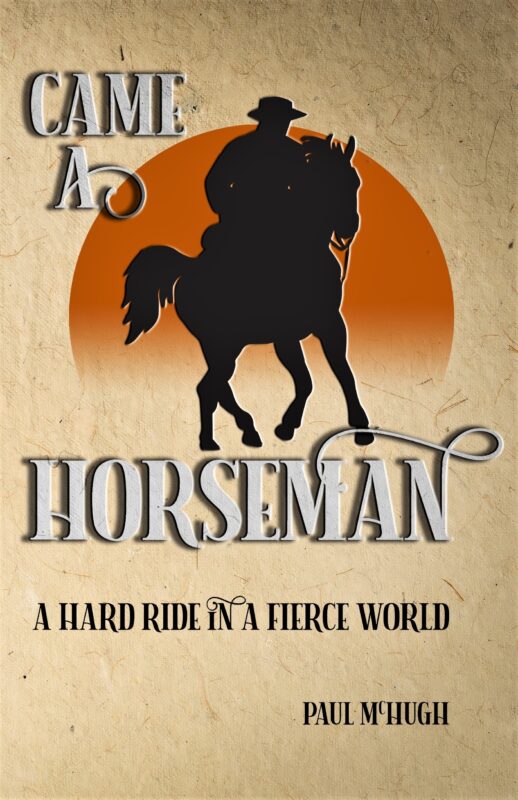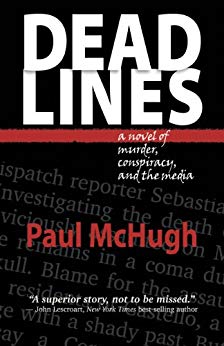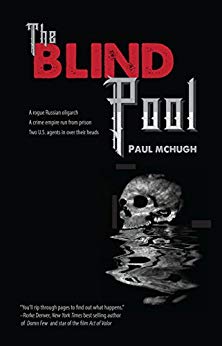
What star guides your course? For me it’s been our sun, always.
(OK, yep, sure, why not, buddy. Go for the easy pick…)
But how handy that our star hovers so near, shares such warmth, and so reliably rises for us.
One of my earliest memories comes from age three. I hid behind a log out in the woods and refused to answer or emerge when my Mom tried to call me in, ‘cos I wished to keep digging down in the fragrant forest duff. She was forced to search high and low for me for an hour. The paddling I endured on my hiney certainly made that outing memorable…

But my most numerous and lingering recollections of childhood were of the many evenings when late sunset light would filter through dense South Florida foliage and fill the sky around our home with a blessed light that seemed to me to be blent of equal measures of liquid emerald and molten gold.
I always felt awestruck by that glow. I’d even say, ecstatic. The pleasure I took in its warm and nurturing presence knew no bounds. Even now, today, if I focus on summoning those memories, a shiver steals up my spine that results in a happy grin.
O, FOR A LUSH LIFE
Many scientific studies have shown that a verdant landscape, an abundance of fresh water, the sight of many birds or animals or even schools of fish shall prompt a release of endorphins in human nerves and foster a sense of well-being. The explanation for this is easy—here’s an appealing place to settle down and raise young, with plentiful game and rich soil. Such a sight tends to ring an evolutionary tuning fork in our brains.

I grew up near the Everglades in decades just after that national park was named, yet well before the years when all lands beyond park boundaries became feverishly drained and developed. Back then, there was no gap between major wildlife habitat and our small house. Should I tell you about the day I went into our bathroom and found a water moccasin coiled around the toilet? The rattlesnakes in the yard, or the coral snake that dropped from a narrow gap between the header jamb and the top of our front door? How about the panther tracks I spotted on the shore of a slough a few hundred yards north, or the alligator who swam languidly through its murky water?
Back then, we had no shortage of sightings of all the robust fecundity a healthy wild world could provide. A mangrove shoreline jammed with scuttling blue crabs by the thousands. An evening sky clotted by dragonflies and the nighthawks who swooped down on them, producing a ragged chorus of gentle roars from their fluttering wings. Great galaxies of fireflies drifting through dark shadows under all the brooding live oaks. Horned owls offering lazy hoots from the tops of the tallest trees as a full moon rose above grassy meadows, and trills of whippoorwills that echoed back and forth through the woods like the call-and-response of an ancient yet enduring litany.
WON’T BELIEVE IN A GOD WHO CAN’T LAUGH
I was raised to be a good Catholic lad.

In a tiny rural church where we worshipped, I grasped the appeal of a godson who’d been slain by a gang of the arrogant, the woeful and the spiritually depraved. And this, despite all his well-demonstrated love, gentleness, generosity and wisdom. But maintaining a solemn and steady regard of young Yeshua bar Yusef wasn’t my sole religion. I valued equally a naïve and native and pagan sense of venerable gods of the forest. I saw them laugh often, whenever thunderstorms made limbs of big old oaks sway and creak, and long beards of moss wagged below the chins of faces formed by dense bunches of churning foliage.
However, the light in and of itself remained my most essential delight. It seemed the source of everything. This radiance poured forth from a fount which truly seemed to summon all the myriad forms around me to arise and dance.
As my years on earth began to pile up, my explorations grew more bold. When I was a little kid, I felt content to wander existing paths, both the human ones and the faint and twisting game trails. In my early teens, I began to blaze my own routes in any desired direction, swinging a machete to make minimal trims through interlaced branches. When that type of travel proved not quite sufficiently stimulating, I added nocturnal forays. While the rest of my family slept, I began to sneak out to wander alone through the darkened woods.
WHEN THE NIGHT COMES

At night, a virgin South Florida forest was a much different critter than the one presenting itself to my eyes by day. A key change: it became far more defined by aural phenomena. The calls of nightbirds were supplemented by the click and whirr and hum of insects, the burps and blatts and croaks of amphibians and reptiles, all of it blending together in a symphonic whole, with a surging and fading interior rhythm all its own—building to an impressive crescendo before inexplicably falling silent. Then way off in the distance, some boss bullfrog would utter a mighty croak, whereupon that giant, wheezing calliope of wildlife vocalization cranked up once again.
To travel through this sea of sound was to be buoyed up by it, to nearly float through a night, feeling myself tugged along by its currents. Nocturnal travel necessarily meant moving much slower, as senses other than sight came to the fore. Hearing grew more acute, scents wafting to my nose identified different soils and plant mosaics, such as the perfumes of a bank of jasmine, the funk of muddy, mossy logs or the spice in slash pine and palmetto zones. My feet traipsed along in a slow shuffle as I steadily felt my way along the floor of these forests.

My cherished chances to enjoy all this natural biologic wealth, to immerse myself in it, didn’t come to a screeching halt. Not exactly. It was much more like the death of two-hundred-thousand cuts. Groves were burnt, bulldozed and plowed. Canals were dug, acreage drained, buildings erected. Roads paved, suburbs surveyed, homes built, fencing installed. Box turtles crushed, blacksnakes shot, bugs sprayed. Not only did no one strenuously object, they didn’t dare to utter any criticism. Few even cared to comment. This large shift by-and-large looked accepted by the public as the way things would be and were supposed to be. It was Progress with a capital “P!”
NOBODY DECLAWS A D-10 CAT
But not to me. I couldn’t conceive how anyone would ever think this was a proper way for “we the people” to inhabit a landscape. To cram a sample of nature into a designated niche, and, that done, next wreak unholy havoc upon all the rest of it.
Thus, the heroes of my boyhood weren’t heedless ag tycoons, nor were they lustful land developers. Not Florida Indian War soldiers or bemedaled generals who led them, nor my many contemporary priests or teachers. Indeed, I felt I could not admire anyone who failed to take a lesson from the ecologic mayhem I saw unfold before my eyes.
Instead, I began to venerate Seminole war chiefs like Osceola, Micanopy and Wildcat, those who had long and energetically resisted the onslaught of “civilization.”

After securing a college degree—not far from the birthplace of Osceola (Asi-yahola, in the original Creek)—I hopped on a motorcycle and rode westward across the USA, looking for a place that yet keeping wild and green enough for me to want to live there, a location that could award me a chance to fight (as my native heroes did) for the values inculcated in me by my many walks through the woods.
After an all-night ride out of Vegas, I came upon Morro Bay, California, at sunrise. I parked my bike and walked down to the shore to touch the Pacific Ocean. Then I proceeded to ride the putt up coastal Highway One through Big Sur. Well, Eureka!, as the state motto has it. I’d found my place to make a stand.
THE BALLPOINT LANCE
In California, I spent three years establishing myself, learning a construction trade to score basic income while also writing a novel amid long evenings in coffee shops about my motorcycle trek. (It came out as my marginally fictionalized, The Search for Goodbye-To-Rains.) I spent the next seven years creating a freelance career, publishing stories on outdoor sport, resource use, adventure, and the environment. And another twenty-two subsequent years as an Outdoors writer and editor for The San Francisco Chronicle.

I must confess a huge embarrassment lurks at the core of my whole careening career. During the era I spent encouraging folks to tune up fully to the natural world, I was also persuading them to torch many tankfuls of carbon fuel in pursuit of outdoor adventures—exactly as I had done while conducting my research. Such thoughtlessness certainly does not make me unique. Still, in retrospect, I find it lamentable. For a defense, I can only offer that I always tried to champion muscle-powered movement over mechanized travel or sport—in the pages of The Chronicle, bicycles boasted no better pal than me.
Mea culpa, mea culpa, mea maxima culpa. As any elder ex-Catholic might exclaim.
Now we’re met as if on a battlefield, which shall test whether our environmental situation, or any situation so misconceived, can long endure.
I’ve moved on from green stories. Wrote ‘em as well as I can, and for sure as long as I could. Anybody who’s not gotten the message by now (from my mild influence, or that of better scribblers, or maybe just the ample evidence presented in a local weather report) clearly ain’t gonna get it. Such folks insist on keeping their eyelids clenched shut. Which is in no way useful to them or anyone else.
MYSTERY WRITERS MAKE THE BEST SUSPENDERS
Consequently, in my twilit years, I’ve chosen to refocus my writing themes. I plan to address the corrosive mindsets of those who seek power and stature and wealth for themselves far more than they do the health of our planet or the well-being of their fellow humans or indeed, the happy life of any other sentient being. Except for—perhaps—their house pets.

But even as I seek to plumb depths of the mentality of poisoners and try to tell stories that may suggest a few antidotes, I will bolster myself by remembering my climbs to a few of my loftiest boyhood summits.
Since we’re talking South Florida here, I refer not to mountain peaks, but the tiptops of trees.
It was one of the pleasures of my youth to clamber up to the tops of the tallest oaks, then cling to the high twigs poking out through a forest canopy. Way back when, from lofty perches like these, I’d gaze out upon vast reaches of foliage that undulated like a terrestrial sea. And thereupon I might watch the approach of flocks of birds that hurtled just above the forest, rippling along in their own broad dark sheets. Onward they would fly, entirely unsuspecting that a human head or eyes might occupy an aerie like mine. They’d whisk right on by me as though I weren’t there, veering only slightly around my face and head, filling my ears with a chorus of chirps, tweets or other cries, as well as the susurrant whisper of their wings.
ONCE THERE WAS A CAMELOT
That’s the kind of truly rich world in which I fervently wish all of us could dwell once again. I mean, at least, those of us who intensely yearn to belong to such a planet.
But until we can do so, I’ll busy myself now telling tales about the fascist mindset of the earth’s destroyers, as well as elements of the sort of brave spirit that can successfully oppose their conscious or conscienceless mayhem.
That begins with my new novel, “Splinter,” a World War II adventure/romance set in Norway at the time of the Nazi occupation. You see, Hitler invaded Norway in much the same manner and for most of the same wacko reasons that Putin recently invaded Ukraine. “Splinter” should see release soon. Kindly keep an eye out for it.

Otherwise, stay tuned for fresh bulletins. These shall note my variations on the theme of Roland’s legendary horn solo at Roncevaux.
“…as Roland’s horn, winding down // from the Pyrenees, saved its dark, full flourishes // for last.” — Galway Kinnell








